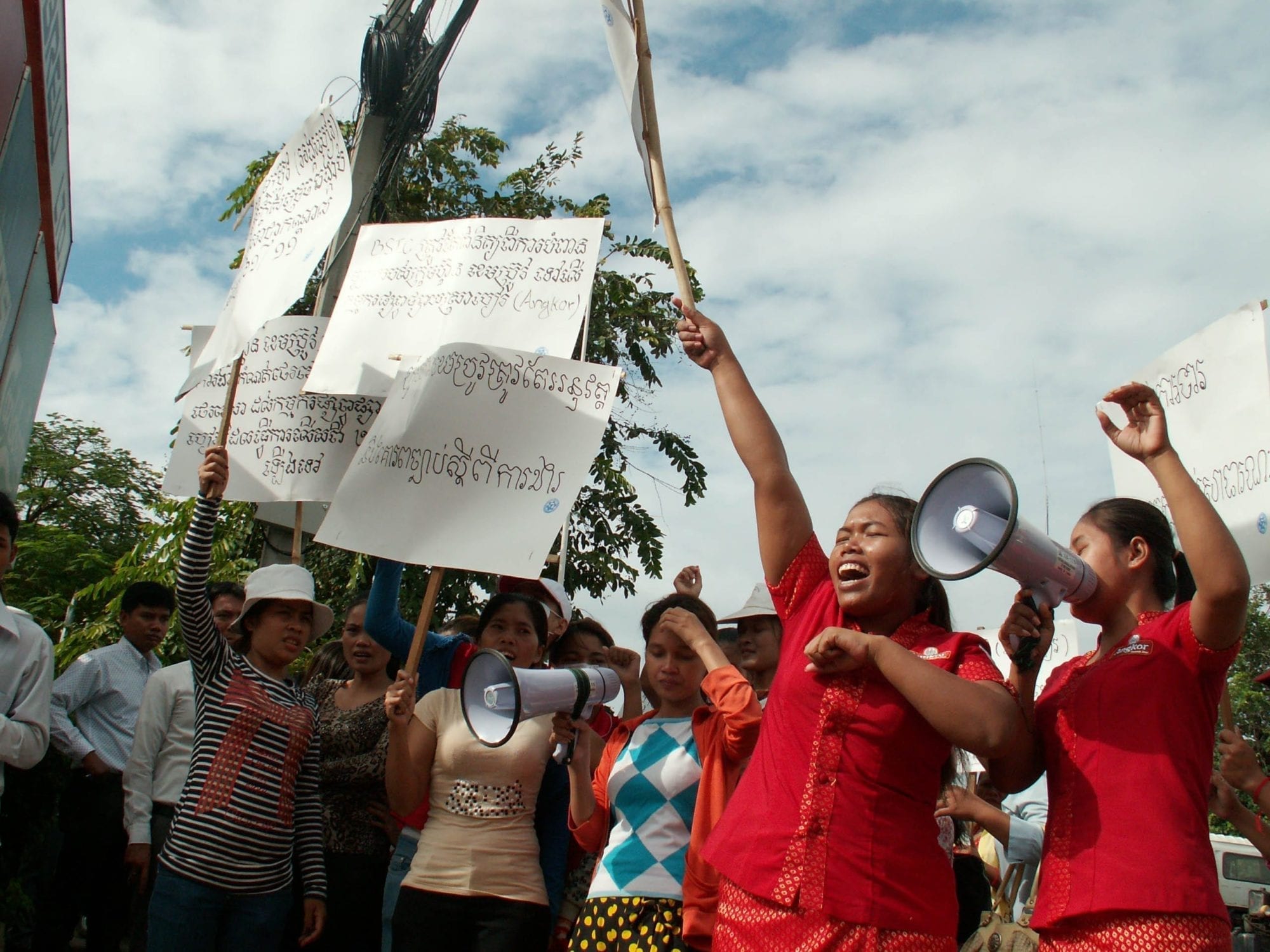
Sep 8, 2016
Women, people of color, indigenous and other disenfranchised and marginalized groups have been hit especially hard by the increasing concentration of transnational corporate power and escalating global economic inequality—but a new report showcases how women and oppressed people are shifting the dynamic through their own power of resistance.
Key to the success of such movements, according to the report, “Challenging Corporate Power: Struggles for Women’s Rights, Economic and Gender Justice,” is “a deliberate effort to unite experiences and struggles across different movements.”
“Each struggle … uses cross movement collaboration in some way to defy corporate power,” according to the report.
“Challenging Corporate Power” stems from an early 2016 cross-movement dialogue convened by the Association of Women’s Rights in Development (AWID) and the Solidarity Center. Facilitated by Just Associates (JASS) in São Paulo, Brazil, the meeting brought together women trade unionists, women workers, feminists, indigenous and black women, lesbian, bisexual, trans, queer, Intersex (LBTQI) activists, av nd women human rights defenders to discuss, debate and share understanding of corporate power, and what it means to their struggles and their lives.
The report will be released September 10 at AWID’s 13th International Forum in Bahia, Brazil, where more than 1,800 participants are gathered this week to strategize around “Feminist Futures: Building Collective Power for Rights and Justice,” the report’s key finding. Cross-movement initiative sessions throughout the conference include the Solidarity Center-sponsored “Building Alliances to End Gender-Based Violence in the World of Work,” a three-hour discussion how gender-based violence at work links to larger struggles for economic and gender justice. The Solidarity Center also is holding a panel on “Women’s Economic Empowerment and Worker Rights,” moderated by Solidarity Center Executive Director Shawna Bader-Blau.
Women Workers Form Unions to Reverse Tide of Inequality
At the January meeting, participants discussed five successful movements to demand accountability—for labor rights violations, ecological damage, trade liberalization and privatization. Women beer promoters in Cambodia, for example, are increasingly forming unions with the Cambodian Food Service Workers Federation (CFSWF) to protest against poverty wages, sexual harassment and violence, long working hours and toxic working conditions in bars and restaurants.
They are some of the 70 million women organized in trade unions today, with many millions more in cooperatives and other worker rights associations, according to the report. Increasingly, there “is a call to scale up struggles of resistance, build bridges between different social movements, and foster and grow people’s power to build new forms of production, consumption and distribution of the world’s social and economic resources,” the report finds.
Through a lens of power analysis developed by JASS, the report examines how corporate power—defined as an excessive control and appropriation of natural resources, labor, information and finance by an alliance of powerful corporations and global elites in collusion with government—affects gender justice, women’s rights and lives through its influence on police that shape the global economy.
The power analysis lens illustrates how corporate power operates and its impacts on women and oppressed peoples. For instance, 63 percent of the top 175 global economic entities are transnational corporations, not countries, a concentration of power that affects gender justice, women’s rights and lives through its influence on policies that shape the global economy.
At the same time, some 70 percent of workers are in vulnerable employment. Women from racially and ethnically marginalized groups and migrant women worldwide, including those living in the global North, have less access to education and skills training, are responsible for an unequal share of unpaid work and domestic homes and are more likely to be in low paid and informal employment without social security benefits.
The recommendations and reflections emerging in the last moments of the Cross Movement Dialogue speak to how women trade unionists, LBTQI activists, feminists, indigenous women and women human rights defenders can sustain their victories by consolidating the power within their movements, nurturing collective power with other social movements, and exerting power over corporations and governments acting in their interest.
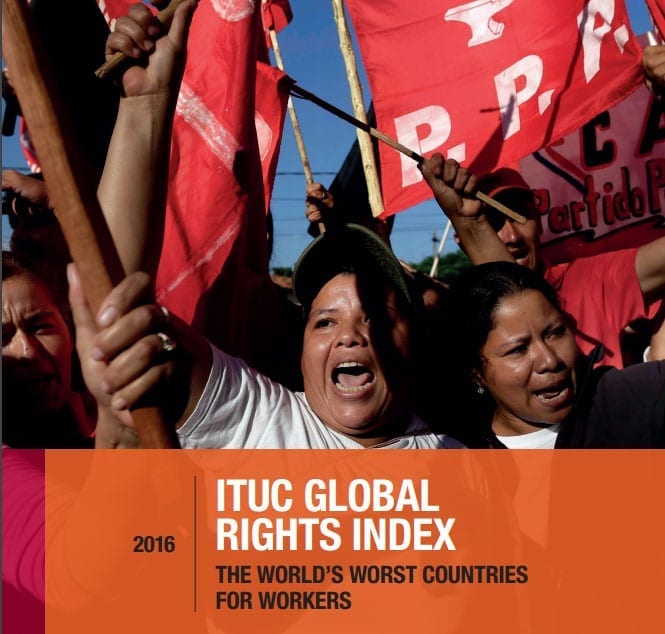
Jun 10, 2016
Workers’ rights were weakened in most regions over the past year, according to the 2016 International Trade Union Confederation (ITUC) Global Rights Index.
Repression of worker rights was compounded by restrictions on freedom of speech and assembly, including severe crackdowns in some countries, which increased by 22 percent, with 50 out of 141 countries surveyed recording restrictions.
The ITUC Global Rights Index ranks 141 countries against 97 internationally recognized indicators to assess where workers’ rights are best protected, in law and in practice.
Global Rights Index Details Chilling Repression
- Unionists were murdered in 10 countries, including Chile, Colombia, Egypt, El Salvador, Guatemala, Honduras, Iran, Mexico, Peru, South Africa and Turkey.
- 82 countries exclude workers from labor law.
- More than two-thirds of countries have laws prohibiting some workers from striking.
- More than half of all countries deny some or all workers collective bargaining.
- Out of 141 countries, the number which deny or constrain free speech and freedom of assembly increased from 41 to 50.
- Out of 141 countries, the number in which workers are exposed to physical violence and threats increased by 44 percent (from 36 to 52) and include Colombia, Egypt, Guatemala, Indonesia and the Ukraine.
ITUC General Secretary Sharan Burrow summed up the global environment this way:
“Repression of workers’ rights goes hand in hand with increased government control over freedom of expression, assembly and other fundamental civil liberties, with too many governments seeking to consolidate their own power and frequently doing the bidding of big business, which often sees fundamental rights as incompatible with its quest for profit at any expense.”
Read the full report.
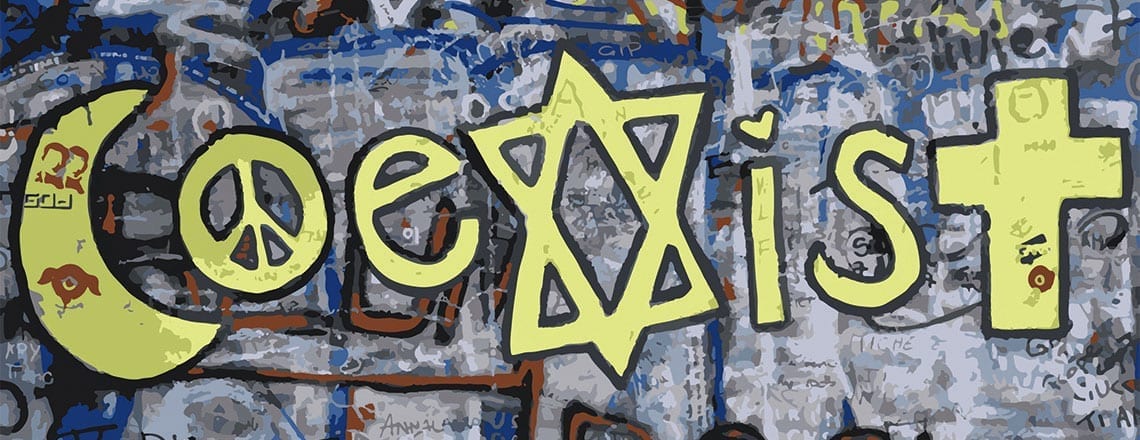
Jun 8, 2016
A new report by the United Nations (UN) Special Rapporteur for Freedom of Peaceful Assembly and of Association examines “fundamentalism in action” that is, “concrete, specific violations of the rights to freedom of peaceful assembly and of association that are motivated by these viewpoints.” The following UN article describes the report.
In recent years, there has been a perceived rise in the expression of fundamentalism in many contexts across the world. Despite the frequent use of the term, “fundamentalism” remains a word that is rarely defined with any specificity. Common use generally centers on religious fundamentalism, and this is perhaps what comes to mind first for most people.
But fundamentalism can encompass much more than religion, and in this report the Special Rapporteur takes a much broader view of the term. He believes that fundamentalism can and should be defined more expansively, to include any movements – not simply religious ones – that advocate strict and literal adherence to a set of basic beliefs or principles. Adherence to the principles of free market capitalism, for example, has spawned what has been called “market fundamentalism.” And the unbending belief in the superiority of one ethnic group, race, tribe or nationality can lead to what might be called “nationalist fundamentalism.” Numerous other examples are detailed in this report.
This report is not concerned with fundamentalist viewpoints per se, but rather with fundamentalism in action: concrete, specific violations of the rights to freedom of peaceful assembly and of association that are motivated by these viewpoints. The mere voluntary adherence to a fundamentalist belief system is not a human rights violation in and of itself. The right to hold opinions and the right to freedom of thought, conscience and religion are protected by Articles 18 and 19 International Covenant on Civil and Political Rights (ICCPR).
The danger arises when holders of these beliefs seek to impose them in a way that controls or restricts the rights of others who may have different views or backgrounds, thereby threatening the values of pluralism and broadmindedness which are core to democracy. The tipping point, for purposes of this report, is when fundamentalist views form the basis for violations of the rights to freedom of peaceful assembly and of association.
A separate section of the report examines the related, but distinct, phenomenon of extremism, and the role that assembly and association rights can play in countering its rise.
“Denying people space for peaceful, legal and constructive engagement does not make their feelings of anger, despair and dissatisfaction go away,” Kiai writes in the report. “To the contrary, it simply pushes these feelings underground, where they can fester and turn violent. Extremism thrives in such environments, because it is the only option left.”
The report (A/HRC/32/36) was released on June 7, 2016, and will be presented to the Human Rights Council during its 32nd session on June 17, 2016.
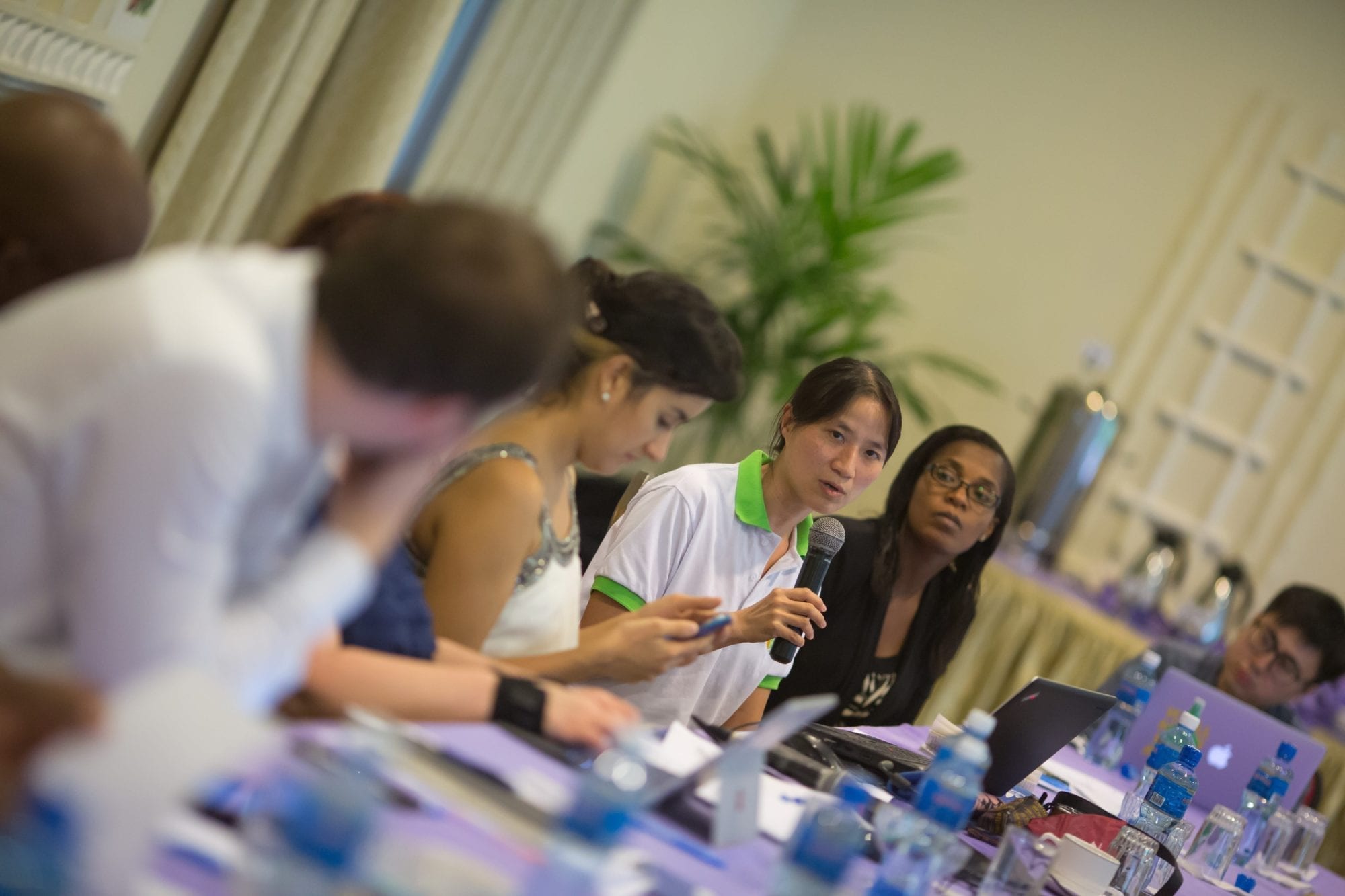
May 9, 2016
More than two dozen worker, union and human rights experts from around the world gathered last week in Kenya to discuss some of the most intractable global labor issues: informalization of work, gender inequality, migrant worker rights and the erosion of workers’ freedoms of peaceful assembly and of association.
The two-day “Expert Consultation on Freedom of Association and Assembly for Workers” was convened by Maina Kiai, UN Special Rapporteur on the Rights to Freedom of Peaceful Assembly and of Association (FOAA), in collaboration with the Solidarity Center. Shawna Bader-Blau, Solidarity Center executive director, co-facilitated the meeting.
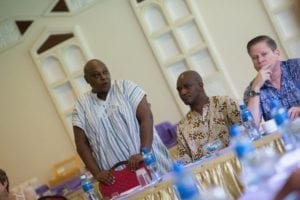
Maina Kiai (left) opens the discussion, with Wisborn Malaya (center) representing informal workers in Zimbabwe and Phil Robertson from Human Rights Watch. Credit: UN
High-level representatives from key organizations—Asia Monitor Resource Center; Asia Network for Rights of Occupational & Environmental Victims; Escuela Nacional Sindical (ENS, National Union School, Colombia); Human Rights House Foundation; Human Rights Watch; International Center for Not-for-Profit Law; International Corporate Accountability Roundtable; International Domestic Workers Federation; International Labor Organization; International Trade Union Confederation; Kenya National Union of Teachers; Kenya Union of Domestic, Hotels, Educational Institutions, Hospitals and Allied Workers (KUDHEIHA); Labor Research Service; National Guestworkers Alliance; Proyecto de Derechos Económicos, Sociales y Culturales (ProDESC, the Economic, Social and Cultural Rights Project, Mexico); Social and Economic Rights Institute of South Africa; UNITE-HERE; World Movement for Democracy; and Zimbabwe Chamber of Informal Employment Organizations—discussed the status of vulnerable workers and their rights, gender-based violence and discrimination, the ability of workers to exercise their rights to freedom of association and assembly, particularly in global supply chains.
The experts closed the meeting by looking at ways to bolster FOAA for vulnerable workers, including strengthening legal frameworks at the national level, monitoring and improving the practices of non-state actors, and establishing global governance mechanisms.
Discussions and conclusions from this consultation will feed into the Special Rapporteur’s next thematic report on the freedoms of peaceful assembly and association, which he will present to the UN General Assembly in October 2016.
“The Special Rapporteur’s focus on these very serious labor issues can have a real impact, and the organizations consulted during this kick-off meeting were excited to support the effort,” said Bader-Blau. “This is a critical moment for working people around the world, so many of whom are seeing their rights as workers deteriorate because the freedoms of association and assembly are under assault.”
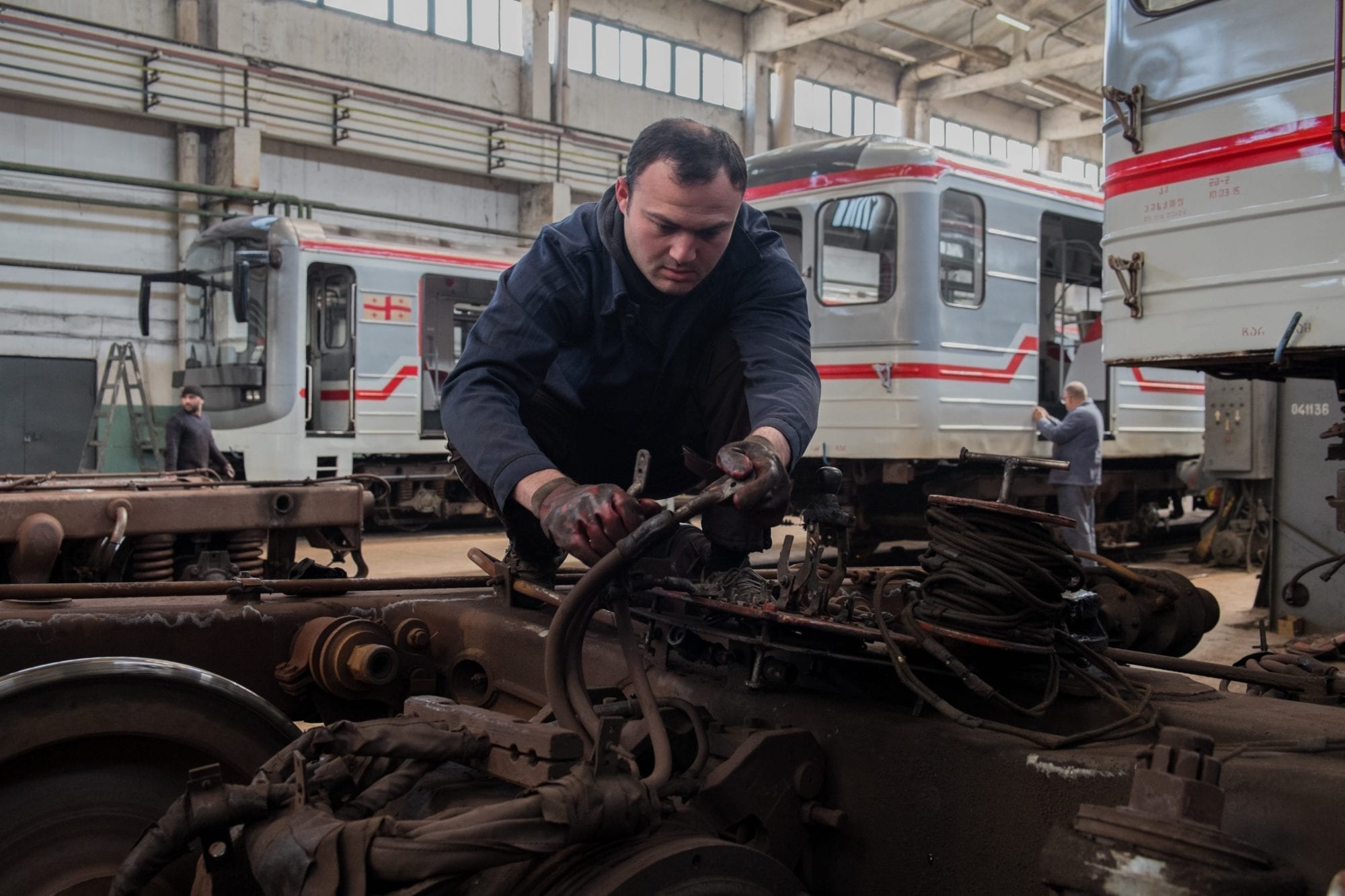
Jul 23, 2015
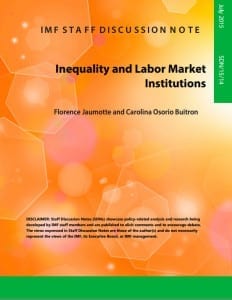 The notion that unionization and higher wages decrease income inequality is a fundamental premise of the Solidarity Center and our allies. But now a surprising source has reached the same conclusion: the International Monetary Fund (IMF).
The notion that unionization and higher wages decrease income inequality is a fundamental premise of the Solidarity Center and our allies. But now a surprising source has reached the same conclusion: the International Monetary Fund (IMF).
“The decline in unionization is related to the rise of top income shares and less redistribution, while the erosion of minimum wages is correlated with considerable increases in overall inequality,” the IMF concludes in a newly released “staff discussion note.”
According to Inequality and Labor Market Institutions, a steep decline in union density is followed by a 1.8 percent increase of top incomes and a 3 percent decline for workers’ share over the ensuing five years. Further, “if de-unionization weakens earnings for middle- and low-income workers, this necessarily increases the income share of corporate managers and shareholders.” The study examined 20 advanced economies between 1980 and 2010.
Declining union strength “appears to be associated with less income redistribution, likely through a reduced influence of unions on public policy,” says Florence Jaumotte, an economist and co-author of the publication. Not to mention another fact: unions help raise wages, both for members and the community at large.
Long a bastion of pro-employer policies, the IMF is not willing to go so far as to recommend the obvious. Acknowledging its findings can “suggest that higher unionization and minimum wages can help reduce inequality,” the IMF dodges the logical conclusion to pursue such policies, saying its data “do not constitute a blanket recommendation for more unionization or higher minimum wages.”
The IMF study notes that such decisions should be made on a country by country basis—leaving the reader to presume that countries supporting shared prosperity among all citizens will enable their workers to form unions, and ensure a living wage for all.
Apr 1, 2015
This report on global migration argues that the recognition and protection of the rights of migrant workers, their families and their communities must be the focal point of any application of the capabilities approach now accepted within the international development community.
This paper investigates the intersection of labor migration and the inclusive growth agenda, and seeks to recommend policy interventions so governments of origin countries can limit the threats labor migration poses to sustainable and rights-based development, and expand labor migration’s positive impacts by making migrant workers agents in promoting and realizing an inclusive growth agenda in their origin communities.
In this review of initiatives to regulate labor brokers, the authors find that state and civil society efforts to address migrant worker exploitation point to potential new policies, most effectively led by state-backed regulatory frameworks.
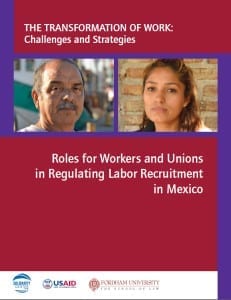
Fordham University law professor Jennifer Gordon examines the roles of guest workers as organizers, monitors and policy-setters in supply chain initiatives and other efforts to address labor recruitment violations.
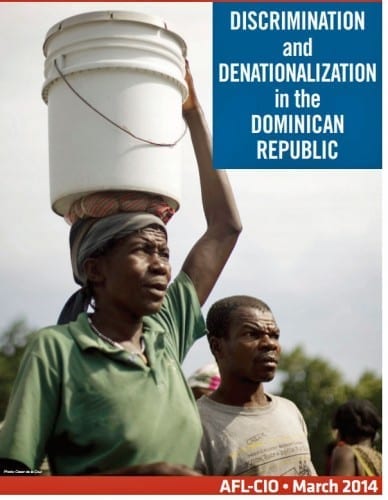
A September 2013 Dominican court ruling taking away citizenship from many migrants means they will be excluded from any activity that requires official identification, including working in the formal sector, attending school, opening a bank account, accessing health services, getting married, traveling or voting.
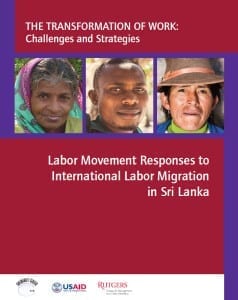
This report looks at the political and economic context within which Sri Lankan unions have attempted to respond to migrant workers, unions’ role in the key governance and policy mechanisms that pertain to labor migration, and the way the Sri Lankan labor movement responded to international migrant workers.
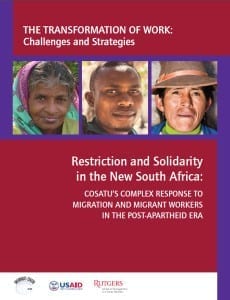
This report look at South African labor’s complicated engagement with migrant workers by examining the migration policy debate, labor’s response to the xenophobic attacks of 2008 and two organizing campaign in the agricultural sector. It sheds light on how labor migration and hostility toward immigrants are intertwined with the state’s embrace of neo-liberal economic policy and with growing labor precariousness.
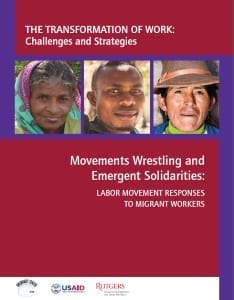
This report synthesizes a two-year project. Part one consisted of desk and case study research conducted by telephone in Jordan and the Dominican Republic looking into cases where unions had made significant changes in their approach to migrant worker organizing. Part two involved field studies in South Africa and Sri Lanka and provides analysis of strategies and results.
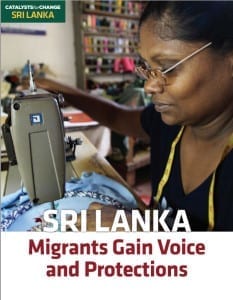 Sri Lanka: Migrants Gain Voice and Protections
Sri Lanka: Migrants Gain Voice and Protections
The Migrant Services Center, a Solidarity Center partner, is assisting migrant workers and their families in Sri Lanka while championing structural change through legislative and governmental processes, and offers a model for other labor and worker rights organizations.
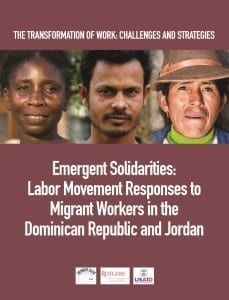
This report explores examples of unions making significant change in their approaches to migrant worker organizing and how the Solidarity Center has played a role in shifting union thinking about migrant workers and supporting union engagement and activities.







 The notion that unionization and higher wages decrease income inequality is a fundamental premise of the Solidarity Center and our allies. But now a surprising source has reached the same conclusion: the International Monetary Fund (IMF).
The notion that unionization and higher wages decrease income inequality is a fundamental premise of the Solidarity Center and our allies. But now a surprising source has reached the same conclusion: the International Monetary Fund (IMF).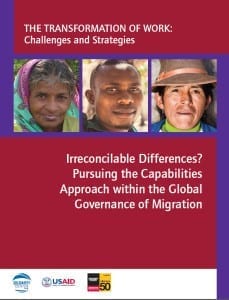
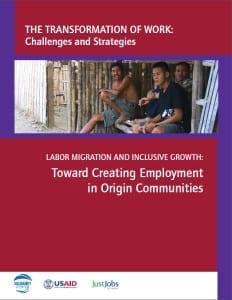
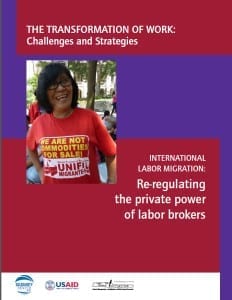 International Labor Migration: Re-regulating the Private Power of Labor Brokers
International Labor Migration: Re-regulating the Private Power of Labor Brokers





